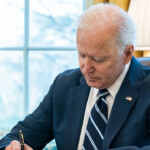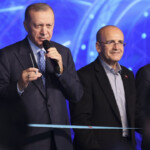The secular segment of society has a historical responsibility at this moment. It must see that life has changed, that it may never be the same as before, and that it can achieve nothing by acting as it did before.
Turkey has an anthropological issue, not a political one. We live as a community that has been defined as a nation, but has not yet become a society. On the one hand are secularists who see themselves as modern and progressive; on the other are the pious who see themselves as having ancient values but who feel they have been subjected to injustice.
Secularists see religious people as a mob that has not been modernized—one that has not yet benefitted from the scientific method, and has not evolved beyond primitiveness. Religious people, on the other hand, regard secularists as an arrogant and despotic mass who have been separated from tradition and have lost their identity.
Of course, there are different aspects of this dynamic, different individual postures, areas of cross-pollination, contact, and opportunities for relationship, but none of this changes much. Because the rapprochement in question is not based on political identity and therefore lacks political power.
In periods when the political field is less ideological, there is a segment of society that may serve as a bridge between these communities, and form a “buffer zone” which can come to the fore; but it erodes under the label of ‘general interests of society’.
But in periods when ideological tension comes to the fore this segment loses its influence. Most of them return to the ideological position of the congregations from where they come. Socially, the center is emptying. Both congregations solidify the other in their imagination.
On the other hand, the situation is not symmetrical. Religious people here are the majority, secular people are minority. In addition, there is a hierarchy between the two segments that stems from the establishment of the Republic. Secularists consider themselves culturally superior and (leaning on the modern Western world) exert normative pressure on religious people. Religious people, on the other hand, try to adapt to this politicized cultural oppression and resist it in their inner culture; maintaining a belief that their own culture is superior in their inner world.
This balance I describe has existed for decades under the ideological hegemony of Kemalism. The secular segment was a minority but it was ideologically decisive. Religious people, on the other hand, were ideologically weak but in the majority. This formed a kind of balance.
But what if the situation is about to change permanently? What if ‘New Unionism’ [a revival of the spirit of the Unity and Progress Party, which ruled between 1913-1918] takes away the secularists’ power while fortifying religious people ideologically? Then it will be very difficult for the secular segment to regain power as a community—maybe even impossible.
The secular section, then, needs to do something other than politics in order to remain in the political sphere. It should first consider the issue in the context of a cultural separation and think about how that separation can be eliminated within a democratic framework. Taking refuge in politics is not a solution, because politics may be insufficient in the ‘New Unionist’ period.
It’s a cultural war. When we focus only on the temporal and spatial distribution/development of secular and religious communities, we stay on the surface the issue. We become prone to seeing ourselves as any other (usually Western) country, and we think the issue will be resolved through politics.
However, as the latest elections implied, this is an issue that will not be solved with politics—in fact it can crust and harden the more one tries to solve it through politics. Because both communities believe that their ‘truth’ is the absolute one, and do not ever doubt their faith. They not only accept life, the universe, and all reality as ‘knowledge’, also but think that their own ways of knowing are the only right approach.
This has a striking consequence. Secular and religious segments are neither in need of each other for understanding and interpreting life— nor in terms of maintaining their individual and congregational lives. The sudden evaporation and disappearance of the other congregation one day would be seen as a “blessing of nature or destiny.”
There is no effort to understand the other, because basically there is no desire to live together. Therefore both segments want to solve the issue politically by reinforcing their own long-term advantages. Secularists advocate supra-political institutions and interventionism because they are minorities, religious people want to limit democracy because they are the majority.
The political mentality is suitable for this situation. We have here an understanding of politics that is built on conflict and power acquisition. It has the characteristics of narrowing the field of the other, constructing its own community as a ‘nation’, and grounding legitimacy with the usurpation of authority. Everything becomes permissible in order to get results, and none of this is seen as a moral issue.
We are not after better management in the elections. Instead, we want to bring our own community to power. The course of the economy, the functioning of the justice mechanism, the quality of the education and health system seem secondary. These would the main issues, if there were no “identity tension.” But if you are in the middle of such a separation, you inevitably make your choice ideologically, because the other camp does the same.
In the last election, this picture became clearer. Due to the ideological confrontation of the opposition —despite the conservative elements within— the government in the eyes of the voters became ‘secular’ and turned into ‘Kemalists’. For the opposition, there was no benefit, it appeared, in highlighting the challenges of everyday life.
Because ultimately, for religious people, the issue was not to choose a ‘good’ administration, but to prevail over the conflict of communities and come out as winners. It should be added that the ruling voters believed that the opposition had the same purpose ‘actually’, and in hindsight, we cannot say that this judgment was very unfair.
The government pursued a simple strategy. It emphasized that the main issue was ideology and identity; presented a ‘story’ in line with this vision, and strengthened his position by adding different parties into the alliance, when the loss of the majority became a real possibility.
It is clear that this government does not want a rapprochement between the secular and religious segments, and that it will provoke divisions as long as it retains the majority. This fact will not change in the coming periods. And it will probably be enough to win in the future as well.
In other words, it no longer seems possible for the secular segment to come to power by highlighting its own identity, with the Kemalist ideology added as a functional feature and a reference for the regime.
I think that the concept of identity, which makes the pious the main owners of the state, has a large share in this. Although the pious are no longer the majority [in Parliament], they are now one with the state, majoritarian, and they have a sense of having regained their historically legitimate rights.
Therefore, for them the charm of ‘good management’ may keep decreasing. Realistically speaking, we can foresee that the overwhelming majority of the religious segment will not welcome a community outside of themselves to come to power.
If this is the case, what should the secular segment do? It can stop aspiring to power, and melt away within the ‘Unionist’ political spectrum, or it can shrink to form a ‘left’ flank of it… Or it can stick to Kemalism, adding an additional color to politics for a while, as an anachronistic, marginal group.
However, this segment could also try to come to self-realization and attempt to understand the pious segment. It may come to realize that this ‘identity separation’ is not a matter of simple modernization or inability to modernize, but that we are experiencing a collective problem that needs to be addressed.
It can realize that Unionism brings a more attractive response to this problem, a more ‘natural’ one, than Kemalism does. From this point of view, it can form a hybrid, which will provide a transition between the secular and the religious segments. Based on this self-identity, it can define indigenousness and nationality on a pluralistic basis. Beyond involving all identities, it can reconsider citizenship as a concept that opens identities to hybridization and development.
It can implement them not by saying ‘I monopolize the truth’, but by digesting the fact that truth cannot be monopolized. It may realize that truths cannot be imported from outside, that such truths can only produce communities, but never a society. In order to be a society, it is necessary to produce our own subjective truth together, and to keep it open to changes.
I don’t know how realistic this is. Probably not very. There is not much effort within the current intellectual sphere, and not even much sign of the existence of such a ground.
Our issue is not political. Squeezing it into politics does nothing but fortify ‘congregationism’. Our issue is the production of a new cultural synthesis, sense of self, identity conception and, based on these, understanding of citizenship— all without rejecting the past.
You can say, ‘Where did all this come from? There has been no such need for this in a hundred years’. You would be right, because before 2016, there was a regime, a citizenship, an identity and a self-awarenss, whose borders were drawn and defined by Kemalism. Politics was conducted within this framework. In this context, the secular community was considered natural, but in reality, only as the carrier and guiding subject, with its ideological support.
However, the failed coup attempt in 2016 dealt a blow to the claims of Kemalism — and through that to the secular community. As a result, secularism as a cultural identity—and Kemalism as its ideological vision—are today increasingly drifting towards the periphery of the political arena. The political center is being redefined, and rebuilt, based on a ‘Unionist’ (Ittihatçı) understanding.
Thus we have now a different imagination of the future than the one we had envisaged before 2016. We can witness an adventure of the country being dragged to a fragile point, with the majority backing an ambitious, dangerous aspiration, based on a cunning thinking, pretending to be smart, and all this has the potential to harming ourselves.
The secular segment has a historical responsibility at this moment. It must see that life has changed, that it may never be the same as before, and that it can achieve nothing by acting as it did before. Or else it faces the possibility that the ‘secular community’ has come to an end as a historical product.
The views and opinions expressed above are the author’s and do not represent those of the Free Turkish Press.


